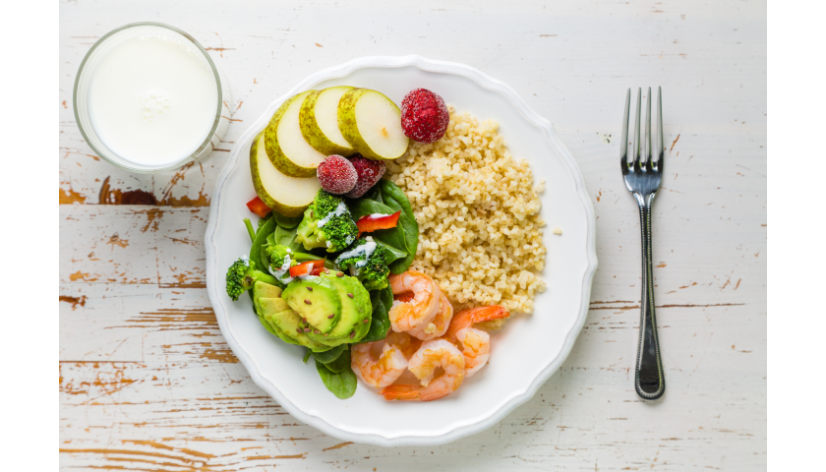Introduction
Leaving on a weight decrease adventure is seldom basic, yet while you’re overseeing diabetes The sensitive equilibrium of overseeing glucose levels while shedding overabundance pounds requires a smart and customized approach.. In this blog post, we’ll explore the challenges and triumphs of weight loss as a diabetic, offering practical tips and motivation for those on a similar path.
Understanding the Connection
Before diving into the specifics of weight loss for diabetics, let’s take a moment to understand the intricate relationship between diabetes and excess weight. For many, obesity is a contributing factor to the development of type 2 diabetes, creating a cyclical challenge that must be carefully addressed.
When excess weight is present, the body’s cells may become resistant to insulin, leading to elevated blood sugar levels. On the other side, overseeing diabetes can be confounded by the need to control insulin while additionally chasing after weight reduction. It’s a delicate dance that requires a multifaceted approach.
The Power of Nutrition

One of the cornerstones of weight loss for diabetics is a balanced and nutritious diet. Instead of viewing food as the enemy, consider it a powerful tool in your journey toward better health. Center around consolidating entire food varieties, like organic products, vegetables, lean proteins, and entire grains, into your feasts.
Understanding the glycemic index of foods can be particularly helpful. This scale estimates how rapidly certain food varieties raise glucose levels. Opt for low-GI foods to help maintain stable blood sugar levels and provide sustained energy throughout the day.
Meal Planning Made Simple

Fruitful supper orchestrating is an extraordinary benefit for diabetics wanting to shed pounds. Begin by making a week by week dinner plan that incorporates different supplement thick food sources. This not only simplifies your grocery shopping but also ensures that you have balanced meals readily available.
Consider talking with an enrolled dietitian or nutritionist who can assist with fitting a dinner plan to your particular requirements and inclinations. They can offer valuable insights into portion control, food choices, and strategies to keep your blood sugar levels in check.
The Importance of Physical Activity

Customary activity is a vital part of any weight reduction excursion, and it holds specific importance for those overseeing diabetes. Taking part in active work further develops insulin responsiveness, making it more straightforward for your body to direct glucose levels.
Find exercises you appreciate, whether it’s energetic strolling, swimming, cycling, or moving. Hold back nothing 150 minutes of moderate-power practice each week, separating it into reasonable meetings Don’t forget to consult with your healthcare team before starting a new exercise regimen.
Mindful Eating for Diabetes
Practicing mindful eating can be a powerful tool for weight loss and diabetes management. Instead of rushing through meals, take the time to savor each bite. Focus on your body’s craving and completion signals, and keep away from interruptions like screens while eating.
Cautious eating can in like manner help you with seeing significant eating triggers.. Managing stress and emotional well-being is crucial for diabetics, as stress can impact blood sugar levels. Incorporate stress-reducing activities into your routine, such as meditation, deep breathing exercises, or engaging in hobbies you love.
Tracking Progress and Staying Motivated
Weight reduction is a steady cycle, and celebrating little triumphs en route is fundamental. Set realistic goals, both for weight loss and blood sugar management, and track your progress regularly. Consider keeping a journal to record your meals, exercise routine, and any fluctuations in your blood sugar levels. Surround yourself with a support system that understands the unique challenges you face as a diabetic. Whether it’s friends, family, or fellow diabetics, having a community can provide motivation, encouragement, and a sense of accountability
The Role of Medication
For some diabetics, medication may be a necessary part of their management plan. If you’re on medication, work closely with your healthcare team to adjust dosages as needed throughout your weight loss journey. It’s crucial to keep them informed of any changes in your diet, exercise routine, or overall health.
Conclusion
Embarking on a weight loss journey as a diabetic requires a holistic and personalized approach. By prioritizing nutrition, incorporating regular physical activity, practicing mindful eating, and maintaining open communication with your healthcare team, you can navigate the complexities of weight loss while managing diabetes.
Keep in mind, it’s not just about shedding pounds; about developing a better way of life upholds your general prosperity. Celebrate your successes, learn from your challenges, and embrace the journey toward a healthier, happier you.
FAQs
1. Can I still lose weight if I have diabetes?
Absolutely! Weight reduction is reachable for people with diabetes.. It requires a tailored approach that considers your specific health needs and focuses on a combination of healthy eating, regular exercise, and mindful lifestyle choices.
2. Is there a specific diet for diabetic weight loss?
While there’s nobody size-fits-all eating regimen, a reasonable and nutritious dinner plan is vital.. Emphasize whole foods, control portion sizes, and be mindful of the glycemic index of foods. Consulting with a registered dietitian can help create a personalized diet plan that suits your preferences and health goals.
3. How does exercise impact diabetes and weight loss?
Exercise plays a crucial role in managing both diabetes and weight. It improves insulin sensitivity, helping your body regulate blood sugar levels more effectively. Participate in exercises you appreciate, and hold back nothing of oxygen consuming and strength-preparing works out. Continuously talk with your medical services group prior to beginning another work-out everyday practice.
4. Can I still enjoy my favorite foods while managing diabetes and losing weight?
Yes, moderation is key. You don’t have to give up your favorite foods entirely, but it’s essential to be mindful of portion sizes and choose healthier preparation methods. Incorporating a variety of foods into your diet and practicing moderation can help you maintain a balanced and enjoyable eating plan..
5. Is it safe to try fad diets or extreme weight loss programs?
It’s generally not recommended to follow fad diets or extreme weight loss programs, especially without consulting your healthcare team. These methodologies may not give the essential supplements to generally wellbeing and can be trying to support. Opt for a balanced and sustainable approach to weight loss tailored to your individual needs.
6. How can I stay motivated throughout my weight loss journey?
Celebrate small victories, set realistic goals, and surround yourself with a supportive community. Tracking your progress, both in terms of weight loss and improvements in blood sugar levels, can be motivating. Remember that setbacks are a natural part of the journey, and it’s essential to stay positive and focused on your long-term health.
7. Should I change my medicine during weight reduction?
Consult with your healthcare team before making any adjustments to your medication. Weight loss can impact your insulin needs, and it’s crucial to keep your healthcare provider informed about changes in your diet, exercise routine, and overall health. They can help monitor your progress and make necessary adjustments to your medication plan.
